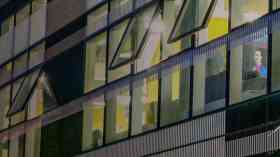Action Mats create resources for primary and early years children focussing on movement skills and active learning.

Expert Panel: Active play
There is a widely reported STEM skills gap in the UK. Getting children engaged in technical subjects from an early age is one way to improve the situation. Victoria Gregory, Benjamin Gunn and Jodi Kelly from KidZania London discuss how role play can stimulate interest in STEM related subjects and careers, as well as improve the wellbeing of children
Biographies at the end of the article
The government’s Industrial Strategy acknowledges that technical education in the UK has its failings, which has resulted in a skills gap in STEM related careers.
Forty per cent of employers reported a shortage of STEM graduates as being a key barrier in recruiting appropriate staff, the strategy says. Less than a third of students studying STEM related A levels go on to gain a STEM degree, and a significant proportion of STEM graduates do not go into STEM occupations.
This gap in STEM-skilled employees has been plugged by overseas workers. But given that Brexit is imminent, the government wants to increase its home-grown talent pool. It is therefore committing £406m to maths, digital and technical education to help address the STEM skills shortage.
So how can schools get pupils more engaged and skilled in STEM subjects?
One of the key ways is to spark interest in the subjects at an early age.
“A huge part of promoting STEM is to open kids’ eyes to the types of STEM careers available to them through role-play, that they perhaps wouldn’t have considered before or know existed,” commenting Benjamin Gunn, KidZania London’s content & theming manager. “We continue the work we started with Year of Engineering in 2018 by introducing new activities with our STEM partners. To illustrate, I am working with the Children’s Intelligence Agency this year in time for STEM Fair, offering ‘Coding 101’ as a brand new activity in the KidZania city based on the KS1-2 Computing curriculum. Children will learn how to code, while building up their creativity and curiosity.”
As jobs evolve in the wake of automation and technology, STEM skills will only become more important, believes Victoria Gregory, general manager at KidZania London. She said: “At KidZania we ensure that many of our role-play activities can be linked to STEM subjects in some way.
“KidZania is passionate about inspiring children to see how the subjects that are taught in the classroom can be applied to real life jobs and careers, and we do this through ‘real-play’ with industry partners. For example, putting maths skills to use in our bank and managing money with KidZania currency, or developing awareness of engineering skills with British Airways in the Aviation Academy, or Science skills with PDSA in the Pet Wellbeing Centre.”
Changing stereotypes
Recent data from the Department of Education has shown that girls in England are substantially less likely than boys to consider taking STEM subjects at A Level.
Whilst the number of girls taking STEM A Levels has increased by 26 per cent since 2010, the research shows 15-year-old boys are more likely than girls to see STEM subjects as being useful when it comes to getting a job.
So why are females not taking STEM subjects further, and ultimately entering a STEM related career?
For Athene Donald, professor of experimental physics at the University of Cambridge, this is linked to stereotypes that discourage girls from an early age. It is seem as a male dominated industry and is under represented by women in the media.
Jodi Kelly, business development manager for education at KidZania London explores the issue of gender, and points out that background and ability can also pose a barrier to STEM take-up. She says: “KidZania is an inclusive environment where every child can make choices that are right for them, irrespective of background, gender or ability.
“We aim to remove career stereotypes that children may have developed, usually early on in childhood and from those close to them, like family and friends. Such stereotypes can have a detrimental effect later in life, where children might not consider certain career choices due to a lack of awareness or perception.
“During the activities, children apply classroom learning into first-hand, practical experiences. Here, they are taught what STEM subjects are, as well as how they make a difference in our daily lives and world of work. That’s why KidZania makes a great platform for early career exploration; carried out in a highly interactive and engaging way.”
Mental health
Mental health problems affect about one in 10 children and young people, according to the Mental Health Foundation. And a new study by NurtureUK found that one in four children have hidden social, emotional and mental health (SEMH) needs, which shows it is not always obvious from the outside which pupils are suffering.
Numerous studies have demonstrated how play is crucial for children’s emotional, social, cognitive and physical development.
The Mental Health Foundation states that “being in good physical health, eating a balanced diet and getting regular exercise, and having time and freedom to play indoors and outdoors” can help keep children and young people mentally well.
How can active play help reverse this trend and improve children’s mental health?
“There is a significant amount of research that links mental health to physical activity,” comments Victoria. “Encouraging children to engage in different activities stimulates active participation, creativity and imagination and supports overall emotional wellbeing.
“At KidZania, we find that learning new skills through play, completing the activities and being rewarded for it, can provide a huge sense of achievement for children. This in turn builds their confidence and supports their emotional wellbeing and sense of self worth.”
Jodi points out that many children find it difficult to interact and communicate their feelings, often caused by high levels of screen time.
Jodi says: “Our active play activities help children develop their social skills and boost confidence through collaboration and teamwork, with opportunity to interact with others of different ages and background.
“Insecurity and self-esteem are also huge factors in mental health, and we are proud to be hosting WWE and NSPCC’s anti-bullying campaign during Parliament Week and Anti-Bullying Week in our city. KidZania is supporting the initiative to drive awareness around anti-bullying through debating workshops. The workshops will encourage students to think about the causes and impact of bullying, providing the opportunity to explore related issues and opening communication about it earlier in childhood.”
Ben believes that mental health in young people is complex:. He says: “Mental health isn’t black and white. It’s complex and unique to an individual. Learning, and the way we like to learn, is the same. At KidZania we try and move away from the traditional teaching style, looking at different opportunities to learn through participation. Active play is a natural way of learning for young people and is crucial in developing physical, social and emotional skills needed to lead healthy lives and make confident, independent decisions later in life.”
The negatives of screen time
A new report from the Association of Play Industries (API) has shown a strong link between screen time and children’s inactivity, with children choosing to spend hours indoors and on screens instead of playing outside.
The report ‘Movement for Movement’ reveals that children have never moved so little and points to evidence that screens are a key reason.
There has been a 50 per cent increase in children’s discretionary screen time (DST) in less than a decade. By the age of eight, the average child will have spent one full year sitting in front of a screen.
The Association of Play Industries’ is now calling upon the government to issue an official recommendation of two hours discretionary screen time per day for children.
“A life spent looking at a screen, instead of outside, can be extremely isolating, and doesn’t allow kids the chance to explore and discover their own interests,” comments Ben.
“As technology grows, play declines, and sadly I believe that KidZania offers an alternative to what will be normal in future.
“At KidZania, kids are exposed to other children in a safe, positive space. They go out in pairs and work with people they may have never met before. If a child is usually glued to their screen, they might be out of their comfort zone, but from the smiles on their faces you can see they soon become in their element and it’s hugely rewarding.
“We try and make our activities as current and modern as possible, but we actually find that the hands-on, practical activities with no technology are some of the most popular, like window cleaning! It’s easy to assume that kids are obsessed with technology, but see at KidZania that if there are opportunities available that don’t involve a screen, they will enjoy them and thrive.”
Collaborative play is beneficial to promoting positive mental health, according to Victoria. She said: “In this modern world of technology, children can become insular and uncomfortable in the presence of others, leading to insecurities and lack of self-confidence. Collaborative play activities such as the ones at KidZania build interpersonal skills, confidence and self-esteem through interaction with other children.
“KidZania offers a broad range of activities to stimulate the mind and body from crawling through the air vents to as an air conditioning engineer, running around the city delivering parcels as a courier, through to learning how to play a new sport with Middlesex Cricket Club and learning new moves with Just Dance. In approaching the activities on offer, we have taken steps to ensure that there is a good balance of activities that are educational but also active to help children learn being healthy can be easy, and fun,” Victoria adds.
Jodi points out that screen time is also having a negative effect on children’s verbal and written communication skills. Recognising this, Kidzania has created a wide range of activities to help support this skill development. This includes hands-on experience writing and developing stories for the Metro newspaper or collaborating as a team whilst working on verbal presentation skills in its radio station, to name but a few.
“With constant developments in technology, we know that screens are very much part of the now and future of children,” Jodi says. “It is important then, that teaching healthy habits within this area remains in focus. That’s why we’ve started working with Goozby, a new app that offers kids enticing rewards for time offline. It’s still in its development phase, so kids in our city are lending a helping hand with beta testing, to make sure it’s user-friendly to children on its release.”
Health & Safety
Some schools are reluctant to take children on school trips because of health and safety fears, despite the Department for Education (DfE) acknowledging that learning outside the classroom is hugely beneficial.
The DfE has recently published new guidance on the health and safety of educational visits, which covers topics such as consent from parents, what to do when using outside organisations, and how to risk assess for adventurous activities, as well as trips abroad.
What advice would our panelists give to those schools concerned by health and safety risks?
Jodi said: “We recommend that schools spend time thoroughly researching school trip destinations in line with the DfE’s ‘Health and Safety on Educational Visits Guidelines’. Schools should look for organisations that hold accreditations, such as the Council for Learning Outside the Classroom’s Quality Badge, demonstrating appropriate standards in safety. As well as holding this badge, KidZania ensures safety for all with safeguarding procedures and risk assessment documents in place and easily accessible online. Safety is everyone’s number one priority and KidZania uses RFID security bracelets that are linked to adults so that children can’t leave the city without their group. We also have robust risk assessments in coordination with Westfield London, manned entry and exit points and all staff are DBS checked.
“We would recommend that teachers and Educational Visits Coordinators also look for locations that offer pre-visit tours. Here, they can conduct visual risk assessments, as well as getting a feel for the educational benefits of a school visit. KidZania offers free teacher pre-visit tours as a chance to see the environment personally before a trip.”
Victoria highlights how seriously Kidzania London takes security: “We constantly scrutinise our practice to ensure we are a fun, active and educational day out all year round. We are constantly speaking to schools to understand their priorities and concerns to ensure we are evolving our offering to cater to their ever-changing needs. We have a strong operations team on hand to deal with any situation, DBS checks for staff, and health and safety practices in accordance with Westfield London shopping centre.”
Ben points out that children need to encounter different types of learning, rather than just being dictated to in the classroom. He said: “Children learn in different ways, and the format of a teacher standing at the front of the class doesn’t work for all young people. It didn’t work for me. I needed to be practical and I needed to be moving. Throughout life, you’re not going to be in the same place and environment like you are in the classroom.
“Learning outside of the classroom has huge benefits in terms of exposure and meeting different people. Broadening a student’s horizons is only going to be a benefit. It’s so important to get exposure of the outside world in ways that work for your classroom, like in school trips. Teaching shouldn’t be didactic, but realistically the education system isn’t going to reform any time soon, so teachers should be looking at how they can help students learn in different ways however they can.”
Expert panelist biographies
Victoria Gregory, general manager, KidZania London
Victoria is responsible for overseeing the running of KidZania in London. She has a wealth of experience in attractions that are passionate about providing educational value. She has worked at KidZania London since September 2016, and has led the team to achieve the School Travel Award for the Best UK Destination or Attraction for the past two years.
Benjamin Gunn, content & theming manager, KidZania London
Having trained at the Royal Central School of Speech and Drama and worked as a freelance theatre practitioner, Ben specialises in the use of theatre within community and educational contexts. During his time at KidZania London, Ben has utilised his background to enhance learning through reality-based role-play. Ben is responsible for the educational content of activities.
Jodi Kelly, business development manager (education), KidZania London
Jodi has more than nine years’ experience both teaching and working directly with teachers across the UK through Explore Learning’s education support centres. She promotes KidZania London’s education programme when visiting schools and attending education events.
Further Information:
Latest News
24/04/2024 - 10:08
Poor mental health in students is contributing to growing levels of school absences, according to a new report by the Centre for Mental Health and the Children & Young People’s Mental Health Coalition.
24/04/2024 - 09:36
A report by eEnergy examines the environmental and financial impact of installing energy efficiency and waste reduction measures in schools.
23/04/2024 - 11:27
The Department for Education (DfE) said that teachers could get up to £6,000 extra to teach "vital" subjects from September.
23/04/2024 - 11:03
Education technology charity London Grid for Learning (LGfL) has designed a new internet safety game to better engage Key Stage 2 students.
22/04/2024 - 11:54
Half of schools are using funding intended for disadvantaged pupils to plug general budget gaps, a poll from the Sutton Trust has suggested.
Supplier Focus
Latest Supplier News
Borg & Overström is a UK manufacturer of premium drinking water solutions. For over 20 years Borg & Overström has developed sustainable, bottle-less, hygienic, drinking water dispensers with the aim to provide exceptional, safe, self-service drinking water into schools, universities, workplaces and communal spaces.










